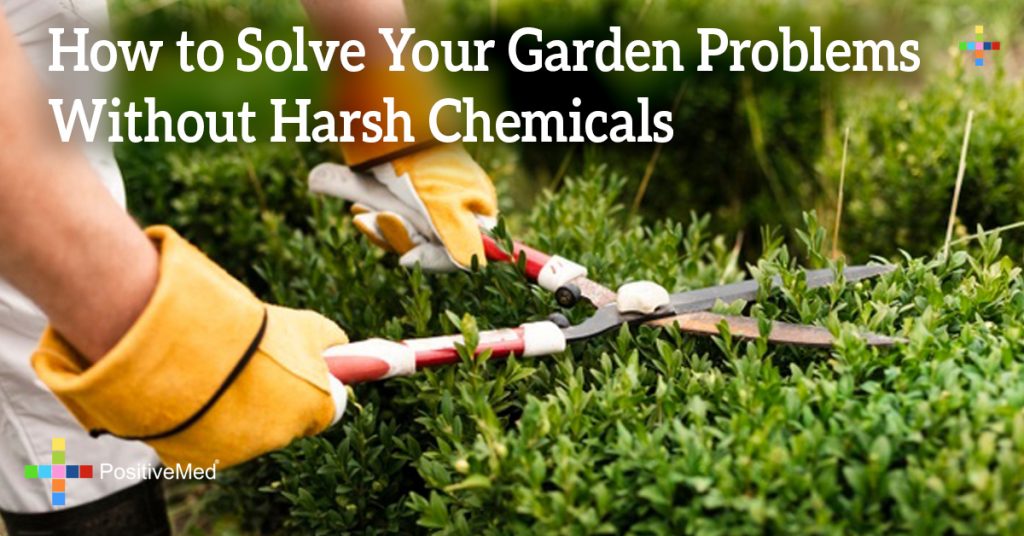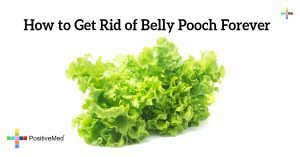
How to Solve Your Garden Problems Without Harsh Chemicals
If you want to take charge of your own health and grow your own produce without harsh chemicals and pesticides, it can be a bit tricky at times. Sometimes it seems as though Mother Nature is conspiring against your best efforts by sending bugs, animals and weeds to damage your well-tended crops.

Of course, you’ll want to fight these marauders by all means necessary – and natural. It takes some planning and some work, but there are many effective ways to keep your garden growing without using chemicals that are bad for the environment and bad for you. Here’s what you can do to keep your garden healthy and safe, naturally.
Problem: Rabbits and Groundhogs
These two particular creatures seem to think that you’ve laid out a buffet just for them. They can quickly and easily decimate young, growing plants. The best way to prevent this is to put up various forms of fencing. Good old-fashioned chicken wire will keep rabbits out; groundhogs may need a bit more of a barrier. Try permanent post and wire fencing, livestock panels or even electrical fencing placed low to the ground.
Another great deterrent is a dog. If you have a furry friend, he can take the job of keeping the garden safe quite seriously. It’s good exercise and stimulation for him, and a safe garden for you.
Problem: Bugs, and lots of them, too!
Insects can really do a number on your produce. Keeping your plants pest-free will requires a good amount of diligence on your part, but it’s well worth it.
Be sure to inspect the undersides of leaves for eggs and squash any you find. When you find adult pests – the most troublesome are potato beetles, Mexican bean beetles and squash bugs – remove them by hand and put them in soapy water. This will keep the population down and reduce the numbers of future generations. Or try one of these organic methods for keeping bugs away from plants.
Problem: Deer
Deer can do a lot of damage to your garden, not only by eating crops but also by stepping all over them. Thankfully, there are several ways you can keep deer from your garden naturally and humanely.
The first line of defense is – a fence. Install a tall fence around your entire garden; an electric fence will do the job quite nicely. For added protection, consider protecting plants within your garden with chicken-wire cages to ensure they remain safe.
In addition to fences, consider using natural deer repellents, either commercial or homemade. Egg-based repellents are especially effective. You might also consider a motion-activated sprinkler system, which has the added benefit of watering your garden. In this regard those pesky deer can prove helpful.
Problem: Grubby Grasshoppers
These large insects can wreak havoc in your garden and really do a number on lettuce, beans and corn. The best way to keep them from hopping into your produce is to put up screen barriers or row covers, so they can look but they can’t touch.
If you keep chickens, they are a great naturally deterrent to grasshoppers. Let them patrol your garden area and eat those pesky buggers up. If you still have a grasshopper grievance, capture and drown them in a large bucket of soapy water, especially when they’re young and have not yet developed into monster feeders.
Problem: Wicked Weeds
There are several natural ways to deal with weeds. Of course, the best way to deal with an errant weed or two is to pull them, being sure to get the roots all the way out, but this can be time-consuming and a pain on your knees and back after a while. There are some other things you can try.
Consider planting your garden in permanent raised beds, which will easily keep weeds at bay since your garden is off the ground. Help things along by using organic mulches to further suppress them. Also, cultivate cover crops in the off-season before you grow your vegetables. They will build up organic matter and also help to suppress and control weeds naturally.
Problem: Poor Soil
Heavy rainfall, especially during the spring season, can wash nutrients from your soil. To combat this, be sure to infuse your soil with lots of organic matter before you begin planting. If you feed your soil with enough organic fertilizer and enough compost (at least two inches worth), you can improve its quality before planting time arrives.
Make sure your garden is rich in organic matter in order to ensure healthy and plentiful crops. You can either tend a compost heap or buy organic materials instead. Either way, your soil and your resulting produce will thank you. Using natural means to strengthen your soil is the best way to go.
These tips should result in a healthy and productive garden, one that is free of harsh chemical treatments. By finding natural solutions to common garden woes, you can rest assured that the produce you pick is the best it can be.





